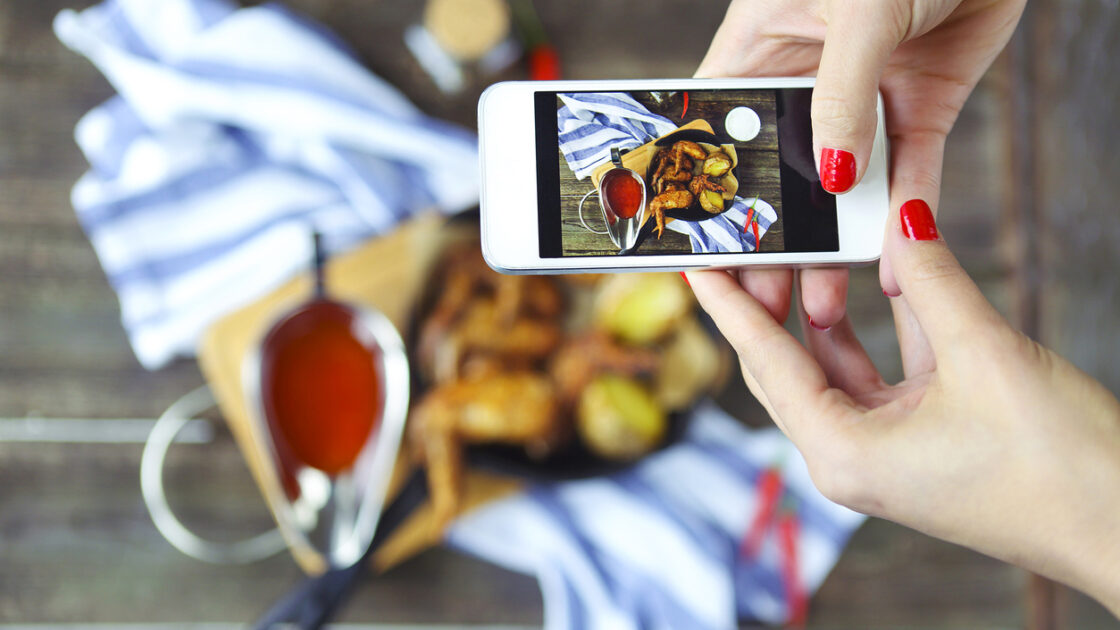Are Instagrammers Creating Too Much Food Waste?

Instagram could be to blame for our growing food waste problem, according to new research conducted by British supermarket chain Sainsbury’s.
Over half of millennials have a “live to eat” attitude toward food, according to the study: preoccupied with sharing their latest eats on social media, millennials tend to buy more food than they need – or invest in exotic ingredients they won’t reuse – and throw excess food away.
Seventeen percent of millennials toss leftovers three or more times a week, the study found, and 20 percent admitted to wasting food after a big shopping trip, contributing to the 16.5 million tons of food waste in the UK every year – and, one can assume, to the 35 million tons of food wasted in the U.S. annually.
“Gone are the days of eating the same food, on the same days of the week, week in, week out,” food historian and broadcaster Polly Russell told the Guardian. “Most people today, particularly younger generations, demand variety. However, with a menu which changes often, it is more challenging to control waste and plan ahead.”
Older generations, particularly those who lived through World War II, are more likely to “eat to live” and menu plan, according to the research, buying only what they need and wasting less. Only about eight percent of 55- to 65-year-olds say they waste food after a big shopping trip, and only seven percent of the 65-plus age group.
“A post-war increase in household food waste is due to changes in how we value choice, time and money in relation to food,” explains Russell.
Do Millennials Deserve the Food Waste Blame?
But not everyone is pointing fingers at millennials when it comes to food waste.
An op-ed response to this research by Nell Frizzell notes that the real culprits aren’t millennials, but rather “a postwar, intensive farming and supermarket culture that has divorced us entirely from how food is made, grown, produced and should be eaten.” She notes that ignorant shoppers who “simply want to pay less for the things they eat” are more to blame than millennials who Instagram all their dinners.
Russell told the Evening Standard that “increased working hours and busy lifestyles” are partly to blame, which also seems to take at least some of the burden off of millennials and their penchant for sharing their food on social media.
Frizzell notes that rather than millennials, it may be Gen X parents who are to blame.
“They bought microwaves, cellophane dinners, sliced bread, pre-chopped mushrooms, oven chips and crispy pancakes in the mistaken belief that it would make their evenings easier, their meals quicker and their lives better,” she writes. “Except, it didn’t. It simply led to a mountain of wasted food and a generation of bankrupt farmers.”
She goes on to speak to young people’s enthusiasm, not just about cooking, but about food: where it comes from, how it’s made, and how it gets to their plates. One need only look at the pressure placed on major food brands of late to switch to cage-free eggs, humanely raised meat, non-GMO ingredients to see the effects that this newly autonomous generation is having on the world of food.
“I think we are driving the change,” Eve Turrow, author of “A Taste of Generation Yum: How the Millennial Generation’s Love for Organic Fare, Celebrity Chefs, and Microbrews Will Make or Break the Future of Food,” told The Atlantic.
“You look around today and you’re seeing amazing things happening with Chipotle, with Kraft mac and cheese saying they’re going to take the yellow dye out,” she says. “There is huge progress being made and it’s largely because the industry is seeing that Millennials are not going to be spending their money on processed foods.”
Millennials, it seems, aren’t wasteful – they’re resourceful. And if they like taking pictures of their sustainably raised, eco-conscious, organic, locally produced, artisanal buddha bowls, what’s the problem?
Related on Organic Authority
Millennial Trends in Beauty: The New Way to Handle Aging
10 Fit Females on Instagram to Follow
Chef Sean Telo: Making Food Waste Delicious in Brooklyn

